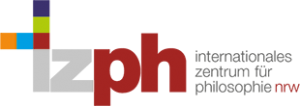7. International Summer School in German Philosophy (2017)
The International Centre for Philosophy NRW organises annually an international summer school in German Philosophy, headed by Prof. Michael N. Forster and Prof. Markus Gabriel.
“Freedom and Free Will in Classical German Philosophy”
10.-21. July 2017
The 7th International Summer School in German Philosophy will trace the central debates concerning the concepts of free will and political freedom in the Post-Kantian tradition. This course will attempt to provide a fairly comprehensive critical overview of the theories of political freedom and free will that were so central to Classical German Philosophy in the late eighteenth and nineteenth centuries. We will begin by looking at the ideas of political freedom and free will as they developed among the ancient Greeks, in early Christianity and in Luther’s hugely influential essay The Freedom of a Christian (which influenced among others Kant, Schelling and Hegel). We will then move ahead to consider a family of compatibilist theories of free will that were developed around the middle of the eighteenth century (Hume, Wolff, and the early Kant). We will then briefly consider Kant’s liberal political philosophy and especially the unusual synthesis of incompatibilism and compatibilism that he developed in the Critical period (the Third Antinomy and the Second Critique).
From there, we will move to the Post-Kantian constellation and focus on selected texts by Schopenhauer, Schelling and Hegel. Arguably, the Post-Kantian philosophers confront Kant on metaphysical grounds in that they believe that Kant’s metaphysics of nature gives rise to a placement issue, as it is hard to see how human freedom could fit into a causally closed world-order of the type envisaged by Kant. Hegel, however, revises the Kantian framework in a radical way by attempting in effect to replace a metaphysical conception of free will with his conception of socio-political freedom as laid out in his Phenomenology of Spirit and his mature Philosophy of Right.
Our last focus will be Hegel, who can be seen as developing a distinctive multi-level theory of several different sorts of freedom, including free will, socio-political freedom, and what one might call metaphysical freedom. Finally, we shall consider Nietzsche’s views on free will, which are striking for their tendency to call both the idea of the will and the idea of its freedom radically into question.
With keynote addresses by Dr. Katerina Deligiorgi (Sussex), Prof. Stephen Houlgate (Warwick), Prof. Brian Leiter (Chicago) and N.N. ().
Here please find the call for applications. Deadline is April 30th, 2017.
Datum: 10/07/2017 – 21/07/2017
Veranstaltungsort:
Conference Room of the International Center for Philosophy NRW (IZPH)
Poppelsdorfer Allee 28
53115 Bonn
3rd floor (elevator available)
Entrance area not barrier-free
